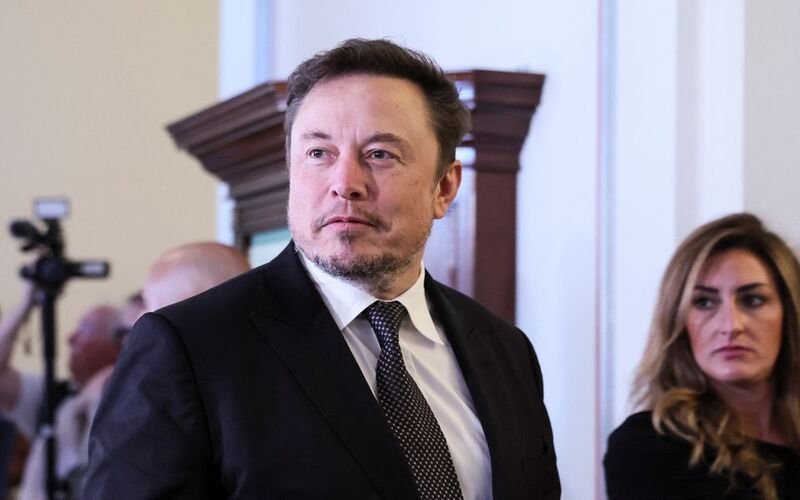Tech titans meet US lawmakers, Musk seeks ‘referee’ for AI. Elon Musk, CEO of Tesla (TSLA.O), Mark Zuckerberg, CEO of Meta Platforms (META.O), and Sundar Pichai, CEO of Alphabet (GOOGL.O), together with other CEOs of tech companies, met with legislators on Capitol Hill to discuss AI legislation on Wednesday. Musk asked to establish a “referee” for artificial intelligence in the United States.
Since OpenAI’s ChatGPT chatbot was made available to the public, there has been a surge in investment and consumer interest in the developing technology. Legislators are looking at measures to protect the public from the potential risks posed by the technology.
According to Musk, there is a need for a regulator to oversee the safe usage of artificial intelligence.
Comparing the situation to sports, Musk told the reporters, “It’s important for us to have a referee.” In addition, the billionaire, also the owner of the social networking platform X, said that a regulator would “ensure that companies take actions that are safe and in the interest of the general public.”
Musk characterized the gathering as a “service to humanity” and predicted it “may go down in history as very important to the future of civilization.” Musk said that he had referred to artificial intelligence as “a double-edged sword” when speaking at the event.
Zuckerberg states that Congress must “engage with AI to support innovation and safeguards.” This is a developing technology; significant equities are at play here, and ultimately, the government is accountable for that. He said it was “better that the standard is set by American companies,” since such businesses “can work with our government to shape these models on important issues.”
There were about sixty senators that took part. Legislators have reported widespread consensus about the need for government regulation of AI.
After the discussions, Democratic Senate Majority Leader Chuck Schumer, who arranged the forum, said to reporters, “We are beginning to deal with one of the most significant issues facing the next generation, and we got a great start on it today.” Schumer is the person responsible for organizing the event. “We still have a very long way to go.”
Co-hosting the event and representing the Republican Party in the Senate, Senator Todd Young said his belief that the Senate is “getting to the point where I think committees of jurisdiction will be ready to begin their process of considering legislation.”
But Senator Mike Rounds, a Republican from Oklahoma, warned that it would take some time for Congress to act. “Are we prepared to go on with the drafting of legislation? Rounds emphasized that this was not the case at all. “We’re not at that location.”
Legislators are looking for ways to protect the country from threats posed by so-called “deep fakes,” which may include fraudulent films, meddling in elections, and assaults on essential infrastructure.
Other guests were the current CEO of Nvidia, Jensen Huang, the current CEO of Microsoft; Satya Nadella, the current CEO of IBM; Arvind Krishna, the previous CEO of Microsoft; Bill Gates; and the President of the AFL-CIO Labor Federation; Liz Shuler.
In light of the next general election in the United States in 2024, Schumer underlined the need to enact laws, especially regarding deep fakes.
“A lot of things that have to be done, but that one has a quicker timetable maybe than some of the others,” he added. “A lot of things that have to be done.”
In March, Musk and a group of AI academics and businesspeople asked for a six-month delay in developing systems more powerful than OpenAI’s GPT-4. The reason was the possible threats such systems may pose to society.
Global regulators have been working feverishly to draft laws that will control generative artificial intelligence, which can compose words and generate visuals whose artificial origins are almost impossible to discern.
Adobe (ADBE.O), IBM, Nvidia, and five other businesses said on Tuesday that they have signed President Joe Biden’s voluntary AI pledges mandating procedures such as watermarking AI-generated material. Other companies that joined the commitments include Microsoft, Intel, and Tencent.
The promises, which were made public in July, have the overarching goal of preventing the detrimental use of AI’s capabilities. July saw the participation of Google, OpenAI, and Microsoft. In addition, the White House has been working on an executive order on artificial intelligence.






































Comment Template